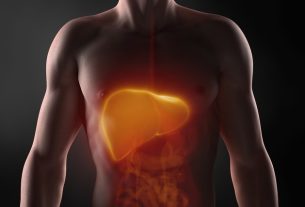Treatment for anorexia nervosa mainly includes group, family and behavioral therapies, as well as a personalized diet and taking dietary supplements, to combat nutritional deficiencies caused by the disease that prevent the person from eating properly.
In addition, it may be necessary to take antidepressant medication prescribed by a psychiatrist, and in more serious cases, it may be necessary to be hospitalized to have a nasogastric tube placed to ensure correct nutrition.

1. What the diet should be like
Nutritional treatment for anorexia nervosa aims to help the person eat a more adequate diet to keep the body healthy and avoid diseases.
During treatment, it is important to have several consultations with a nutritionist to create an appropriate eating plan with the aim of replenishing the vitamins and minerals that may be lacking in the body to lead a healthy life.
In some cases, the doctor or nutritionist may recommend the use of multivitamin supplements, such as Centrum, which help replace vitamins and minerals that are not being ingested in sufficient quantities through food. These types of supplements can be taken for around 3 months, and the need for their use should be re-evaluated after this period.
Supplements have no calories and therefore do not make you gain weight, but they should not be taken as a substitute for a healthy diet with the amount of calories necessary to regain health.
Nutritional treatment thus helps to avoid or treat the consequences of lack of food, such as thinning hair, hair loss, weak nails, constipation or dry skin, for example.
2. Therapy
Being accompanied by a psychologist is also a very important part of the treatment to overcome anorexia nervosa because this professional can use strategies to raise awareness of correct body image, and help the person find the root of their problems and the possible solutions they can adopt.
Consultations must be carried out at least once a week, for an indefinite period of time, until the person is able to have a better relationship with their image and is able to overcome the cause of the disorder, which also promotes well-being.
In some cases, group therapy may also be indicated, in which several people with the same disorder share their experiences, which generates empathy and a desire to help other people, which also ends up helping with the treatment itself.
3. Medicines
The use of medication is only recommended for people who have other psychological disorders that can influence anorexia, such as anxiety and depression, for example. Therefore, if the psychologist identifies the need to use medication, he or she can refer the person to a psychiatrist, who must prescribe the necessary medication to promote the treatment of anorexia and promote the person’s well-being.
It is important that the medication is used in accordance with the psychiatrist’s recommendation, and it is also important that regular consultations are carried out to check whether the medication is having the desired effect or whether it is necessary to adjust the dose.

How long will the treatment take
The treatment time for anorexia nervosa is very individual, because it depends on many factors, such as the person’s general health, mental health and commitment to following the nutritionist’s instructions, in addition to taking medication appropriately and actively participating in psychotherapy sessions. .
It is normal for there to be some relapses, and for people to think about abandoning treatment because they think they are gaining too much weight and that they will not be socially accepted, which is why all family and friends need to support the person during treatment.
Signs of improvement and worsening
Not going more than 3 and a half hours without eating, having more hydrated and stronger hair, nails and skin, reaching a healthy weight and having family meals are signs that the treatment for anorexia is being effective, however it is important that psychological support is maintained to avoid relapses.
On the other hand, when treatment is not followed according to guidelines, the person may show signs of worsening, such as going long periods without eating, not having family meals, missing therapy, continuing to lose weight or even having lack of energy for daily activities such as taking a shower.

Sign up for our newsletter and stay up to date with exclusive news
that can transform your routine!
Warning: Undefined array key "title" in /home/storelat/public_html/wp-content/plugins/link-whisper-premium/templates/frontend/related-posts.php on line 12
Warning: Undefined array key "title_tag" in /home/storelat/public_html/wp-content/plugins/link-whisper-premium/templates/frontend/related-posts.php on line 13



